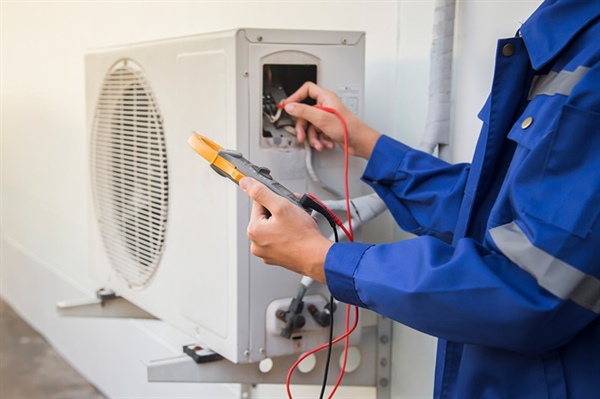What to Do If Your A/C is Leaking Water

An air conditioner (A/C) that leaks water can lead to several problems.
Understanding why there's a leak and how to address the issue promptly can prevent costly repairs and ensure your system continues to operate efficiently.
The Tiger Plumbing, Heating, & Air team are your local experts, so we are here with our comprehensive guide to explain several common causes of A/C leaks and what you can do to fix them.
Let's take a look!
How Do I Check and Clear a Clogged Condensate Drain Line?
The drain line allows condensation from your air conditioning system to be removed from the unit, but when it becomes clogged with dirt, algae, or debris, water backs up and leaks out, which is one of the most common reasons for a leak.
To check for a clogged drain line:
Locate the Drain Pan
The pan will be in your indoor air handler; inspect it for standing water. If the pan is full, it’s a sign of a blockage.
Find the Drain Line
These lines are typically located outside your home. Try using a wet/dry vacuum to remove the clog, or some homeowners use a pipe cleaner or plumber's snake to clear the line manually.
Get Regular Maintennace
Cleaning the condensate drain line is essential to prevent future clogs. Scheduling professional A/C maintenance services will also ensure that your unit is free of blockages and operating efficiently.
Could a Dirty Air Filter Cause A/C Water Leaks?
A dirty air filter restricts airflow in your A/C unit, which can cause several problems, including water leaks. When airflow is restricted, the evaporator coils can freeze. Once the coils thaw, the excess water from melting ice can overflow the drain pan, leading to leaks.
To prevent this, check your air filter every month and replace it as needed. A clean filter improves airflow, which helps the evaporator coils maintain a proper temperature and prevents freezing.
Replacing your filter regularly prevents leaks and enhances the efficiency and longevity of your A/C system. If you are dealing with serious leaks caused by frozen coils, you may need professional A/C repair services to restore the system's functionality.
How Do I Inspect the Condensate Pump for Issues?
The condensate pump moves water from the drain pan to the outside of your home. If the pump malfunctions, water could back up and leak from your A/C unit.
First, ensure the unit is powered off to inspect the condensate pump. Then, check for visible signs of damage or blockages in the pump and its tubing.
If the pump makes unusual noises or fails to start, it may need to be repaired or replaced.
Testing the pump’s float switch is also a good idea, as it triggers the pump to start. If the float switch is stuck, the pump won’t activate, leading to water buildup.
Regular inspection and maintenance of the condensate pump will ensure that it functions properly and prevent water leaks from your A/C system.
What Are the Risks of Ignoring an A/C Water Leak?
Water accumulation can cause mold growth, which harms indoor air quality and results in costly remediation efforts. If left unchecked, water damage can also affect your ceilings, walls, and flooring, leading to expensive repairs.
Beyond property damage, a leaking A/C may indicate a more serious issue within the system, such as malfunctioning components or reduced efficiency. Over time, these issues can lead to higher energy bills and even a complete system failure.
To avoid these risks, it's important to address water leaks as soon as they are noticed. Regular inspections and maintenance on your A/C unit can help you catch potential problems early and avoid costly repairs.
How Can I Prevent Future Water Leaks in My A/C Unit?
Preventing future water leaks in your A/C unit requires regular maintenance and attention to key components, and we recommend the following:
Get an Inspection:
Schedule annual professional inspections to ensure that the condensate drain line and pump are functioning correctly and that the evaporator coils are clean.
Change Out the Air Filter
Regularly replacing your air filter is also crucial for preventing frozen coils and water buildup.
Install a Safety Switch
Another preventative measure is installing a safety switch that automatically shuts off the system if it detects water overflow, preventing damage.
Make Sure Your A/C is Right for Your Home
Additionally, ensuring that your A/C system is properly sized and installed for your home’s cooling needs will reduce strain on the system and help avoid leaks.
Need A/C Services? Tiger is Ready to Pounce Into Action
Stay chill with Tiger Plumbing, Heating, & Air, your local and trusted Eden Prarie expert since 2001.
Our fast response times and certified technicians ensure your A/C, plumbing, and heating runs purrr-fectly. Need an emergency fix or a full replacement? We're on call 24/7.
Beat the heat and experience cool comfort guaranteed - schedule your service today! Call us at 612-445-3030.